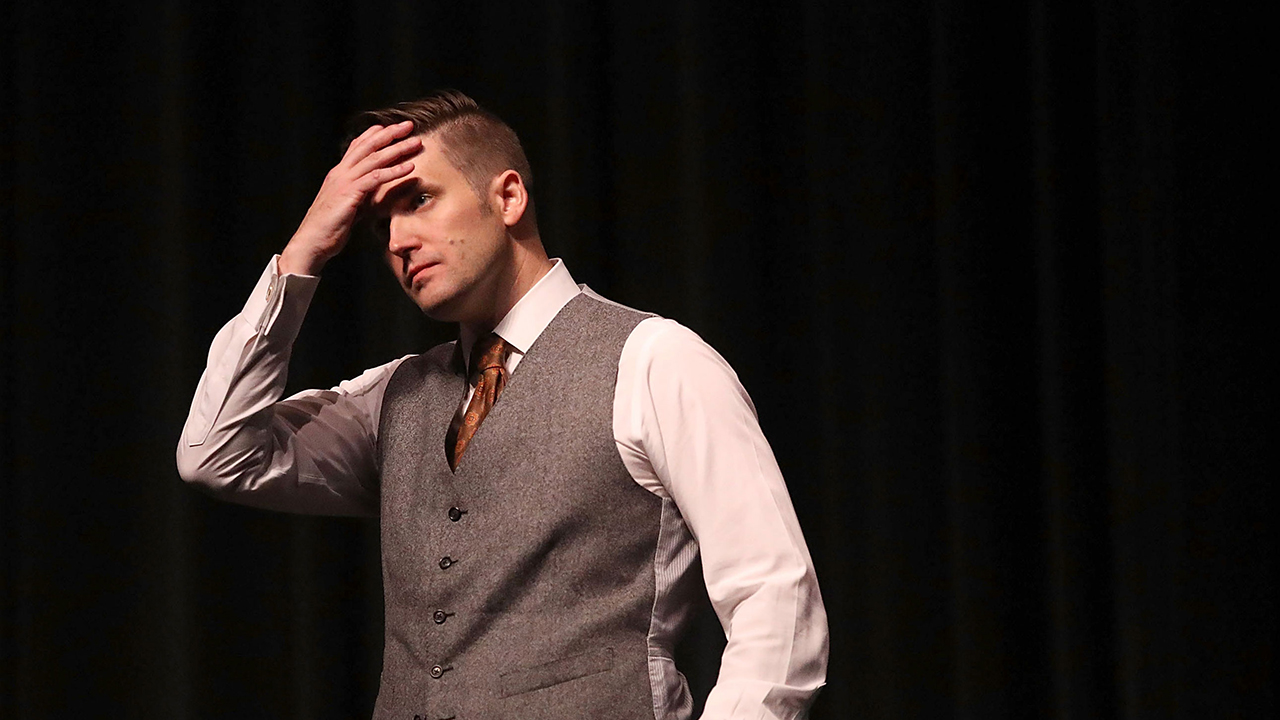In the aftermath of white nationalist and alt-right provocateur Richard Spencer’s shouted-down appearance at the University of Florida in Gainesville on October 19, a lawsuit seeking to force Michigan State University to allow Spencer to speak on its campus continues to work its way through federal court.
Cameron Padgett, a 29-year-old Georgia State University graduate student, has been attempting to book Spencer to speak at campuses across the nation. Some, like the University of Florida, have reluctantly agreed; those public universities that are resisting Spencer’s sanctioned presence — after incidents of violence at Spencer appearances like Charlottesville, where Heather Heyer was killed by a white supremacist, and Gainesville, where racists fired a gun at anti-Spencer protesters — have faced lawsuits and threats of lawsuits from Padgett and his self-proclaimed “alt-right” lawyer Kyle Bristow.
Padgett was successful in his first lawsuit against Alabama’s Auburn University after it denied Padgett’s request for Spencer to speak (for this action, Padgett enlisted former Ku Klux Klan attorney and longtime outspoken racist Sam Dickson as his litigator). Padgett was awarded a $29,000 settlement from Auburn, and the university was forced to allow Padgett to speak on April 18.
The litigation against Michigan State has not gone as smoothly for Padgett and his second attorney, Bristow. Michigan State argued, “The decision [to deny Padgett’s request for Spencer to speak at MSU] was made due to significant concerns about public safety in the wake of the tragic violence in Charlottesville. While we remain firm in our commitment to freedom of expression, our first obligation is to the safety and security of our students and community.”
At a pre-motion conference on Friday, November 3, District Court Judge Janet T. Neff chided both Padgett’s attorney Bristow and Michigan State’s attorneys for name-calling in their motions, according to The State News, the university’s student newspaper.
“That kind of language is inflammatory and derogatory and really has no place in [court] proceedings,” the judge said. “I just am not going to tolerate it.”
Judge Neff then ordered Padgett to choose a mediator for the dispute by November 17, according to the Associated Press, in an attempt to get the parties to reach an agreement outside of court.
Michigan State’s board of trustees was also removed as a defendant in the lawsuit; Michigan State University president Lou Anna Simon remains a defendant.
Bristow claims Padgett’s First Amendment rights are violated by Michigan State’s refusal to allow Spencer to speak on campus, and he’s asking for an injunction allowing Spencer to appear there, with Michigan State paying all security costs, along with more than $75,000 in damages.
At the University of Florida in Gainesville, where Spencer spoke on October 19 after Padgett negotiated his appearance there, the university spent $600,000 on security, and Florida Governor Rick Scott declared a state of emergency prior to Spencer’s appearance.
Three Spencer supporters were arrested for attempted murder after Spencer’s speech. Local police said they heckled anti-Spencer protesters with Hitler chants and Nazi salutes before firing a gunshot that missed the protesters, according to the Miami Herald.
The Gainesville appearance wasn’t exactly a success for Spencer. The majority of attendees booed and heckled Spencer throughout his speech, and at the end, Padgett lost his temper too, screaming, “Y’all aren’t tolerant. Y’all aren’t anything! Y’all are full of shit! You all are acting like animals and the communist antifa that you are!”
Despite their apparent humiliation in Gainesville, Padgett and Spencer are continuing to book college appearances, and sue the universities who resist. In late October, Bristow filed lawsuits against Ohio State University and Penn State University after both denied Padgett’s requests to book Spencer.
Meanwhile, the University of Cincinnati and the University of Michigan have considered requests from Padgett for Spencer to speak on their campuses. The University of Cincinnati’s board of trustees voted to allow Spencer to speak on campus, saying in a statement, “For higher education to maintain its pride of place as the marketplace of ideas, we have a responsibility as teachers, scholars, learners and trustees to drive out bad ideas with better ones,” adding, “Hate has no place on our campus or in our world.” Spencer’s appearance at the University of Cincinnati is expected to happen early next year, the St. Louis Post-Dispatch reports.
The University of Michigan hasn’t made a decision on allowing Spencer to speak on campus, but Bristow, Padgett’s attorney, told the Washington Times, “I will not hesitate to sue UM.”
Spencer recently suffered another setback unrelated to his college speaking tour. The company that operates the federally owned Ronald Reagan Building and International Trade Center in Washington, D.C., rejected a request for Spencer to host a November 19 conference there for the National Policy Institute, the white supremacist “think-tank” he heads.
At this time, we have not been able to secure assurance from law enforcement authorities that adequate security can be provided through reasonable measures to protect against the significant risk of violence and injuries posed to event attendees, our clients, tenants, employees and the general public as well as damage to the property,” the operator of the federal building told Hatewatch.
No word yet whether Spencer plans to sue the General Services Administration, the U.S. government agency which owns the Reagan Building and International Trade Center. Stay tuned.



